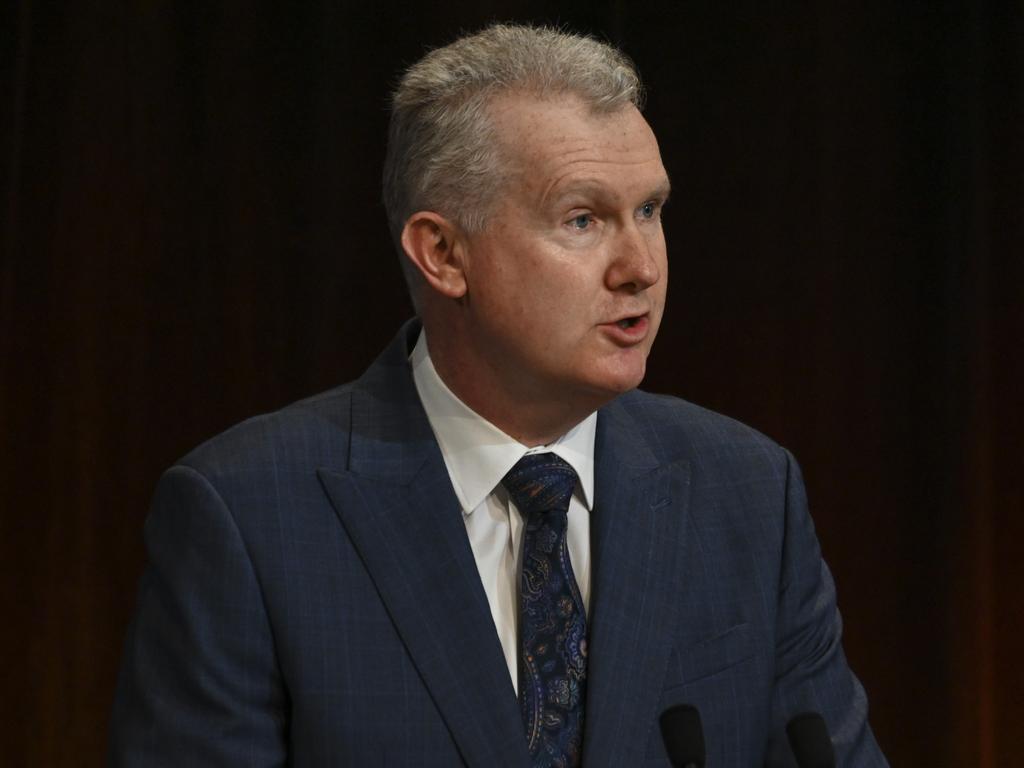Jobs summit hints at rude budget wake-up call
Despite this week’s jobs spectacular, reality is about to bite, and bite hard.
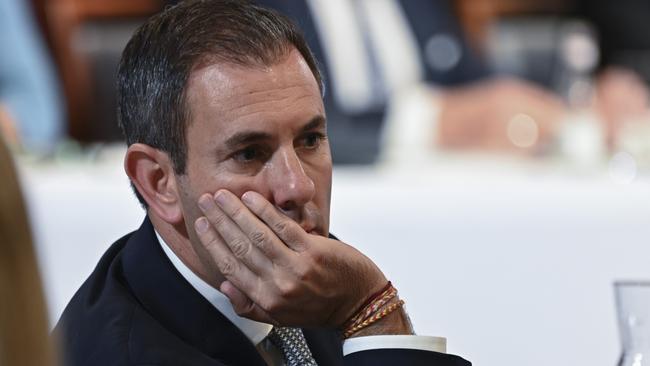
Jim Chalmers is switching his operating system to budget mode. The Treasurer hopes his first taxing and spending statement will make all parts of the nation more “resilient”, a foundational word he’ll be using all the way to October 25 and beyond.
Chalmers has now ticked off an economic update to parliament and this week’s jobs and skills summit, so the “dire” fiscal constraint again looms, as does the coming assault on household budgets and home values by the central bank.
He says the task of the budget is to fortify the country for the next crisis and to “provide responsible cost-of-living relief in a way that delivers an economic dividend to implement our election commitments”.
“The budget has got a big job to do because we’ve got to make sure that we’re not adding to inflationary pressures that the Reserve Bank is dealing with independently,” Chalmers told reporters ahead of the summit.
Any joy out of the summit won’t be banked in higher real wages for at least a few years and there’s little room in a debt-laden budget for fresh pain relief. The Treasurer is on the interchange bench in the months ahead as the RBA takes control.
Another rise in official interest rates is expected on Tuesday, most likely taking the official cash rate target to 2.35 per cent. And in just a few weeks, the six-month, 22c-a-litre fuel excise discount is ending.
In the months after the election, consumers have been telling pollsters they’re fearful of the economic outlook, especially as inflation has been running well ahead of income growth and eating into purchasing power.
As the Albanese government settles into its first term, the latest True Issues survey of voters by JWS Research shows cost of living is even more “top of mind” for voters than it was pre-election, “particularly among 35 to 54-year-olds managing the rising costs of mortgages and child rearing in a prolonged period of low wage growth”.
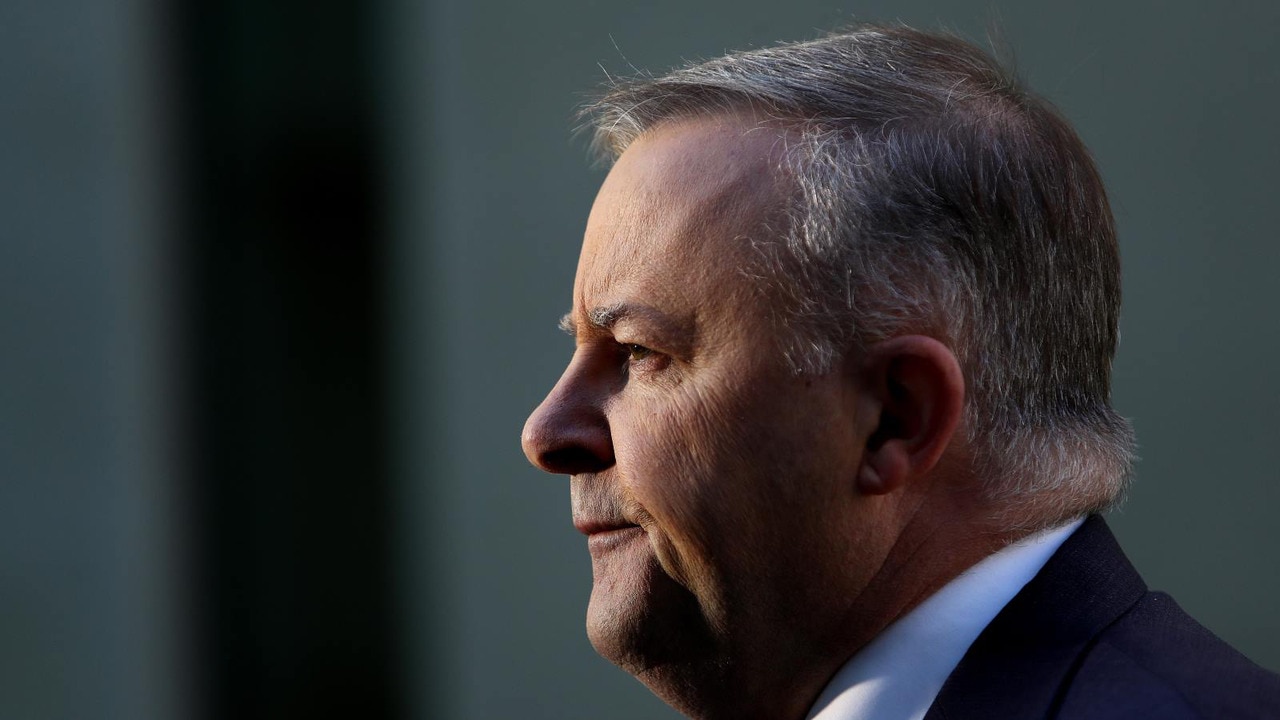
The mortgage belt is marking up Labor but also expects further action to ease the pain on their finances. Consumer surveys show a plunge in sentiment on the question of whether it’s a good time to buy a major household item.
Yet the recession-like mood hasn’t shown up in spending. Retail sales figures this week revealed strong growth in July, although spending on non-essentials is topping out.
Could this be a “last hurrah” before families batten down the hatches? Guilt over $5 takeaway coffees and resentment over poor service and bill shock of dining out (“I could make this at home”) may begin to bite in hospitality as mortgage costs take off.
Demand running ahead of supply is pushing up inflation, which the RBA is determined to rein back to its target rate of 2 to 3 per cent. The headline rate will be in the vicinity of 8 per cent later this year, which will bring enormous pressure on Labor to “do something”, no matter the likely explanations about “base effects” and one-off factors.
Yet there is no inflation breakout at play here, as veteran summiteer Ross Garnaut told participants in Parliament House on Thursday night. “The spectre of a virulent wage-price spiral comes from our memories and not current conditions,” he said.
Australian households are highly indebted. Shoppers, if you want the RBA to take the foot off the brake, ease up a little on spending.
The RBA’s four interest rate hikes since May are yet to bite in the retail world. One reason is that there is a time lag between the central bank’s decision and when mortgage holders take a hit to their cashflow.
Plus, there are household savings accumulated over the pandemic, and those buffers have cushioned the blow of price rises on food, fuel and energy.
ANU economist Ben Phillips believes the rhetoric of a “cost-of-living crisis” is overblown. “Overall, people are still spending and employment is growing,” he tells Inquirer. “The fundamentals are pretty strong, although for people who always do it tough, such as single parents and low-income households, it’s difficult”.
The Commonwealth Bank, Australia’s biggest home lender, says there’s a three-month delay between an increase in the cash rate and the higher repayment being deducted from a customer’s bank account. The latest spending figures predate the impact on cashflow of the RBA’s rises in May and June, and so the agony for households is coming.
Between August and December, the interest rate impact quadruples based on the already announced policy changes and will lift again depending on what the RBA does to the cash rate in September and beyond.
CBA head of Australian economics Gareth Aird says there is a potentially concerning dynamic playing out where the RBA has made really aggressive rate moves and is expected to deliver another 0.5 percentage point hike on Tuesday.
“It’s like having five shots of vodka in an hour and saying, everything is OK. But you know that it will soon have a big effect,” Aird tells Inquirer.
“So, the RBA need to pause in the not-too-distant future to see what effect it is having because they’re relying on lagging data as well. They’re flying blind and they’ll need to stop at some point soon and just wait to see how people respond.
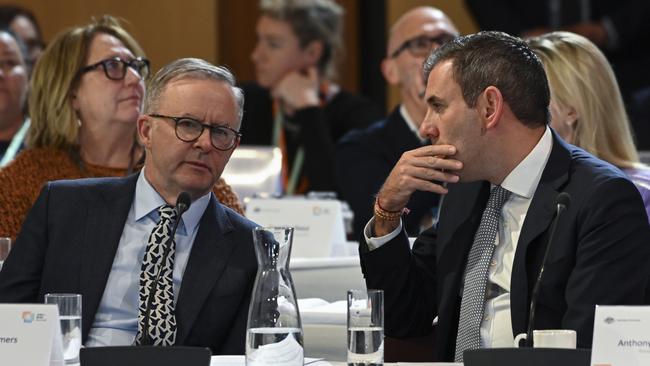
“They think there’s this resilience and spending will continue to lift as rates rise further. But that resilience has not been tested as the bulk of the rate hikes delivered to date have not had an impact on a borrower’s cashflow. But they will very soon.”
Moreover, there has been a rapid decline in property prices, sales turnover and lending for housing, and it’s spreading around the country. The CoreLogic home value index, covering the eight major capital cities, fell for the fourth straight month in August.
The 1.6 per cent fall is the largest monthly decline since 1983. Sydney values have plunged by 6.7 per cent in the past three months, with Aird noting “that can only be described as a collapse in prices”.
Naturally, those tumbling values have a negative “wealth effect” and will be confronting for recent borrowers. There’s already a hit to spending on household goods, the category that’s closely linked to the housing market.
When properties are changing hands less often, demand for carpet, furniture and refrigerators subsides.
Private sector economists point out that housing market conditions won’t improve until the RBA is certain the threat of inflation has passed. The central bank doesn’t explicitly target property values, but it is clearly now driving decisions on borrowing and, by extension, home prices.
Last weekend, US Federal Reserve chairman Jerome Powell delivered a blunt message on the future of interest rates and the battle on inflation that resonates for the conduct of our monetary policy and the exchange rate.
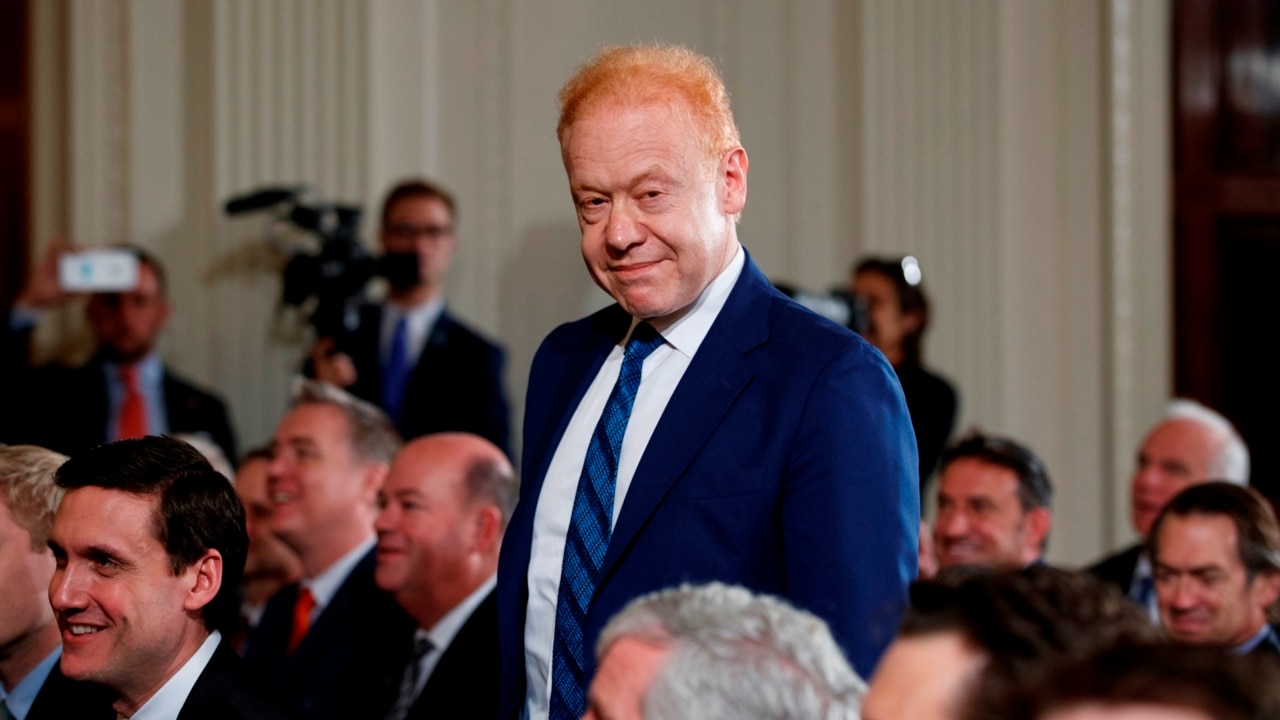
“While higher interest rates, slower growth and softer labour market conditions will bring down inflation, they will also bring some pain to households and businesses,” Powell said in a speech at the annual Jackson Hole, Wyoming, gathering of central bankers.
“These are the unfortunate costs of reducing inflation, but a failure to restore price stability would mean far greater pain.”
After previously drawing distinctions between the state of play in the US and Australia, Powell’s Australian counterpart Philip Lowe has lately declared the RBA is “committed to doing what is necessary” to ensure that inflation returns to target over time.
Lowe has said the “normalisation” of the cash rate is also trying to create a better balance between supply and demand in the economy, keeping the economy “on an even keel”.
We’ll get a backwards, if partial, view on this balancing act on Wednesday when the Australian Bureau of Statistics publishes national accounts for the June quarter, half of which was taken up by the six-week federal election campaign. There were two rate rises in that quarter.
But the seeds of the coming world of hurt are in those plummeting home prices, which will cut confidence and spending in the lead-up to the new custodian’s first fiscal outing.
As Chalmers sends spending ministers back to their departments, empty-handed, the gap between the promises of the election victory on May 21 and the reality of budget repair will sink in.
Ministers, too, will have to be robust and voters will have to be patient on cost-of-living relief, as building resilience to future shocks is the focus.
“That’s a difficult balance to strike when you’ve got our fiscal constraints,” Chalmers said of the work ahead amid the uncertainty of numerous moving parts.
October’s tough choices will snuff out some of the buzz of the jobs summit. Labor’s main priorities will be ticking off election promises and reorienting spending away from lurid Coalition waste and rorts to measures that, the Treasurer will argue, enlarge our economic capacity.
The budget’s manifest defects can no longer be ignored.


